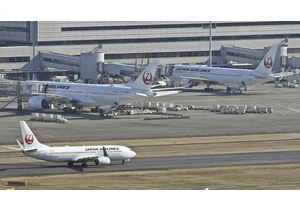When Elon Musk founded SpaceX in 2002, he thought it had a less than 10% chance of succeeding as a business. “I just accepted that I would probably just lose everything,” he said in 2016, “but that maybe we would make some progress if we could just move the ball forward. Even if we died, maybe some other company could pick up the baton.” SpaceX’s advancements indeed have given birth to a growing space economy and revived the manufacturing base south of Los Angeles, where the first generation of aerospace companies helped humans land on the moon. In 2020, global space-related activities generated $447 billion, with commercial work accounting for almost 80% of it. “Spending money on space actually is a way to increase the economy on Earth very, very efficiently,” says Sinéad O’Sullivan, a self-described “interplanetary economist” at Harvard Business School’s Institute for Strategy and Competitiveness. O’Sullivan notes, for example, that every dollar the government spends in the space industry translates to close to $50 in societal value. Suborbital tourism has grabbed the headlines, but it has overshadowed the infrastructure being built. According to research from the VC firm Space Capital, investors poured almost $25 billion into hundreds of aerospace startups through the first nine months of 2021. This money is funding such things as small satellites that can provide high-resolution images of Earth for identifying methane leaks contributing to greenhouse gas emissions. On the ground, new methods for creating and launching the rockets that deliver those satellites into space are being engineered to be lighter, cheaper, and even portable, via 3D printing advances, which could have wide implications for all manufacturing. The companies we feature here—ABL Space Systems, Relativity Space, and Millennium Space Systems—have clustered south of L.A. Call it the new Rocket Row, or Space Beach, as locals do. They’re working to advance production techniques as well as improve the frequency and flexibility of orbital missions. As Musk presaged, success in this realm is not guaranteed. But these companies are using space to try to improve life on Earth—and pushing the bounds of the human experience in the process.
Autentifică-te pentru a adăuga comentarii
Alte posturi din acest grup

An online spat between factions of Donald Trump’s suppo

U.S. tech investor Cathie Wood is calling on

Visiting adult and gambling websites doubles the risk of inadvertently installing malware onto work devices, according to a new study.

There are certain social media rules we can all agree on: Ghosting a conversation is impolite, and replying “k” to a text is the equivalent of a backhand slap (violent, wrong, and rude). But what

For Makenzie Gilkison, spelling is such a struggle that a word like rhinoceros might come out as “rineanswsaurs” or sarcastic as “srkastik.”
The 14-year-old from

Japan Airlines said it was hit by a cyberattack Thursday, causing delays to

